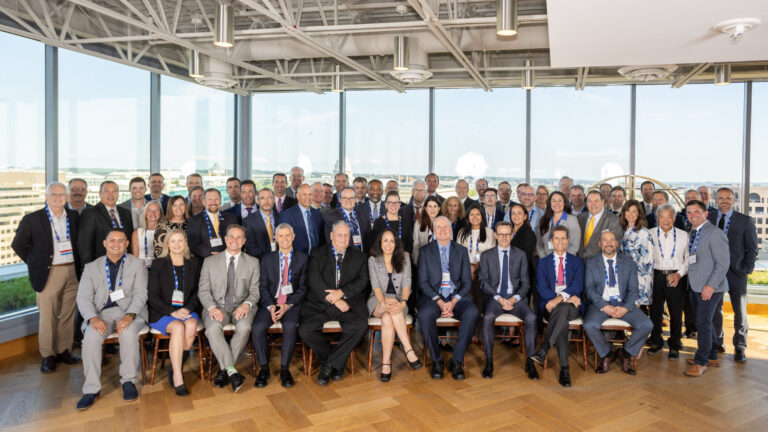
Lower Carbon Cements, Alternative Fuels, and Carbon Capture Top the Agenda for Cement Industry Fly-in
Challenges of Permitting, Unreasonable Regulations also to Be Addressed
Washington, D.C. (June 11, 2024) — U.S. cement industry leaders will be on Capitol Hill today and tomorrow to meet with Members of Congress and their staffs to discuss progress with decarbonization efforts, challenges with the permitting process, and more stringent emission standards recently finalized by the Administration. The meetings are part of the Portland Cement Association’s (PCA) Annual Cement Fly-in for its member companies. PCA represents America’s cement manufacturers.
The association is at the beginning of a five-year focus on alternative fuels, lower-carbon cements, and carbon capture utilization and storage (CCUS) — all critical levers for near and long-term emissions reductions. PCA views the government as an important partner in its companies’ efforts to decarbonize the industry.
“There’s a lot happening in Washington this year that directly impacts America’s cement manufacturers, which is likely why we have a record turnout of cement company leadership in town for this fly-in,” said PCA President and CEO Mike Ireland.
“Our industry’s top objective is to reach carbon neutrality. And while our companies appreciate recent funding from the DOE to assist in decarbonization efforts, it’s still challenging for them to make significant advancements due to a cumbersome permitting system and unrealistic EPA regulations that could lead to eventual cuts in plant operations and staffing. And now, just as the infrastructure law is hitting its stride, the country needs more cement and concrete, not less.”
“We’re here to ask Congress to work with us to arrive at reasonable policies and standards that will allow manufacturers to continue to provide the resilient, sustainable building materials our country has come to expect,” Ireland said.
PCA’s Roadmap to Carbon Neutrality provides a broad suite of actions and options – many of which need policy support – for the entire cement-concrete-construction value chain to reach carbon neutrality by 2050, if not sooner.
Among the Roadmap’s recommendations, PCA and its members have been vocal on:
Accelerating research, funding and investment in CCUS technologies and associated infrastructure.
Streamlined regulation, siting and permitting practices for facility and infrastructure modernization.
Market acceptance of low-carbon alternative cements such as portland-limestone cement, which has been recently accepted by all 50 state departments of transportation.
Concrete, made with cement, is central to the American built environment, with about 393 million cubic yards of concrete used in the United States last year. The cement, concrete and related industries directly and indirectly employ nearly 600,000 people and contribute more than $130-billion to the U.S. economy every year.
For more information about PCA and the industry’s sustainability efforts, visit www.cement.org and www.shapedbyconcrete.com. To track the industry’s progress on its sustainability journey, please visit www.cementprogress.com.
# # #
The Portland Cement Association (PCA), founded in 1916, is the premier policy, research, education, and market intelligence organization serving America’s cement manufacturers. PCA supports sustainability, innovation, and safety while fostering continuous improvement in cement manufacturing, distribution, infrastructure, and economic growth. For more information, visit www.cement.org.